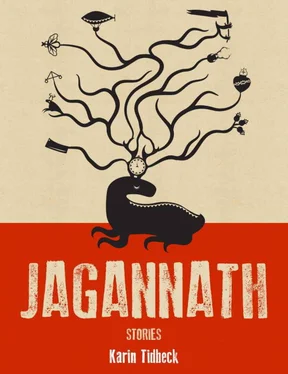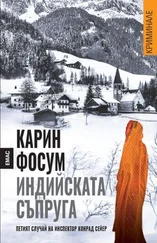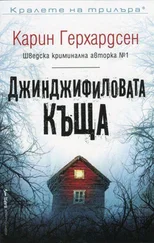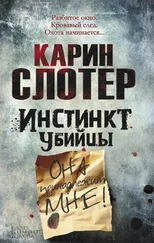She kept the bag for a long time.
I made you in a tin can. It was one of the unlabelled mystery cans the charity in Åre village handed out. Most of the time it would be sausages or split pea soup.
This is how I did it: I waited until it was my time of the month. I took the tin can from the shelf under the sink. I filled it halfway with fresh water and put half a teaspoon of salt in it. Next I put in a small, gnarled carrot from last year’s garden. I had saved it because it had two prongs, like little legs, and arm-like stumps. Then I held the can between my legs and let some blood trickle into it. Finally, some of my spit. I put some plastic wrap over the opening. The rest of the night, I sat with the can in my lap and sang to you. That’s how you were made, in October, as the first snows fell.
You grew steadily through the winter months. I sang to you and fed you small drops of milk. By Yule you were big enough that I moved you to a larger container, an old bucket. You started kicking then, I suppose because you finally had room to move around. You didn’t need any nourishment other than milk, which was good because the charity in Åre had closed. I wouldn’t go and ask for welfare money. I lived on last year’s potatoes and roots, a bird here and there, cotton-grass from the bog, and whatever I managed to steal from the shops.
The snow was slow melting that year. It wasn’t until late May that the last of the snowdrifts at the back of the house finally disappeared. The little mountain birches were unfolding their first leaves. I lifted the cloth and saw that you were ready to come out. You were curled up in the bucket, perfectly formed, the liquid around you cloudy and brown. I lifted you out and dried you off with a towel.
It was perhaps half past three in the morning. On the porch, the air was sharp and clear. I could see all the way to the Norwegian border, to the Sylarna Mountains. Sunlight trickled over the worn mountaintops. I held you up.
“Welcome home,” I said.
You opened your tiny eyes and looked out over the bog. We stood like that for a while.
Once out of the bucket, you grew quickly. The cloudberries ripened in August, covering the bog in flecks of gold. We picked them together. By then you were walking, your skin becoming thicker and darker in the sun. Although you couldn’t carry anything with your stumpy arms, you were good at snagging the berries with your mouth and dropping them in the basket. I made cloudberry compote and jam. You could never have enough of the cloudberries. I remember you sitting at the kitchen table, golden jam everywhere, smacking loudly.
As autumn slid into winter, you learned to talk. Your voice was low and a little raspy, and you couldn’t roll your Rs. We read together: old magazines, children’s books I had saved. We played in the snow. I had a kneading-trough that we rode down into the valley and I dragged back up. You burrowed into the drifts, shovelling the snow aside with your arm-stumps and wriggling tunnels through the snow. On the eve of your first Yule, you wondered about your origins.
“Where did I come from?” you asked. “Where’s my father?”
“You don’t have one,” I said. “I made you myself.”
“Everyone has a father.”
“Not everyone.”
“Why did you make me?” you said.
“I made you so that I could love you,” I said.
The snows melted, and we celebrated your first birthday. The frost left the ground. The days lengthened. You reached me to my waist and didn’t want to sit in my lap or let me hug you. We had our first argument when you started digging in the kitchen garden just outside the house. I found you in the bottom of a crater of upturned earth and seedlings, rubbing the soil into your skin. I yelled at you for ruining my plants, and why would you do this.
“But it’s because the soil is good here,” you said.
“Dig wherever you want,” I said. “But stay the hell away from the garden, or we won’t have anything to eat.”
“The soil isn’t as good anywhere else. You don’t get it.”
Without another word, you waddled off to the birch copse and dug under the trees the rest of the morning while I tried to salvage the kitchen garden. It was as if you dug away your anger, because after a while you came back with your little arms outstretched. We went inside and made lunch together and got soil and mud all over the floors.
You kept digging every day. Over by the bog, down on the slope towards the valley. It looked like we had voles or rabbits. You’d come home with things you’d unearthed: a broken saucer, part of a ski pole, little bits of bone, fool’s gold.
When the weather became warm enough, I took you to Kall Lake to go night swimming. I used to go swimming in Kall Lake as a child. That was the best thing about summer.
You squealed in delight when you saw the rocky shore and the grey lake mirror. Once in the water you became frightened. It was too big and loose you said, too loose. You sat on the shore while I swam. You didn’t like the rocks either—they were too hard. You wanted to go home and dig. We didn’t go back to Kall Lake.
The new batch of jam takes up a whole shelf. I think it’ll stay there. I can’t eat jam anymore. I’ll still keep it here though, just in case.
I suppose it was bound to happen. I woke up from an afternoon nap to find the cottage empty. I looked behind and inside the shed, in the copse of mountain birch huddling next to the house. You were nowhere to be found. Finally, I started calling for you. There was no answer. I thought perhaps you had fallen into a hole on the bog. New ones open every spring. I put my rubber boots on and went to look. I walked from the cottage and west towards Sylarna. I walked until the cottage disappeared from view, and then I turned north. I walked back and forth, calling you, until the sun dipped below the horizon. Then I turned back to the house.
You must have been digging all day. I found the hole by accident, kicking the kneading-trough in frustration where it lay on the ground by the front steps. As it moved, I saw the hole. I called your name.
“Please come out,” I said.
“I don’t want to,” you said, muffled.
“What are you doing down there?”
“Digging.”
“Won’t you please come out? I’ll make us supper.”
“I don’t want to.”
I went and got the shovel, setting it to the edge of the hole. But as soon as the shovel broke the ground, you screamed. I looked down. The soil was riddled with white root tendrils.
“You’re hurting me!” you wailed.
I understood then.
“I’m so sorry, love,” I said. “I am so sorry. I won’t hurt you anymore, I promise.”
I went back into the house and sat down at the kitchen table. I cried a little. Then I got the watering can from the garden and filled it with fresh water. I poured it over the ground by the hole. I could hear a giggle down there. That was the first time I’d heard you make that sound.
August is here. The cloudberries are still red; in a little while they will ripen to gold. I will pick as many as I can, for jam and compote. You haven’t spoken since that day you burrowed into the ground. But there’s a clutch of green leaves growing by the hole. When I water them, I can still hear faint laughter.
[pyːret]
Description, Behavior, and History
When not applied to small and defenceless creatures, the word “pyre” describes a mysterious life form: Pyret, Swedish for “the little tyke.” The word has all the characteristics of a euphemism, but nothing resembling an older name has turned up—possibly because it was taboo and in time forgotten, as is often the case. A name that evokes an image of something benevolent and harmless indicates both a form of worship and an underlying fear of its powers: an expression of love and an appeal for benevolence. [1] Like gods and spirits, predators were often called by euphemisms to avoid bad luck or visits from said creatures. In some cases the euphemisms have replaced the taboo name in common usage. The Swedish word for wolf, varg (killer, strangler) , was originally a euphemism for the taboo ulv; similarly, the euphemism for magpie, skata (the elongated one), has replaced the original skjora. The word for bear shared by all Germanic languages, (in Swedish björn), simply means “brown,” a euphemism so old that it has acquired euphemisms of its own and the original name has been lost (although linguists through comparative studies have constructed a hypothetical root word in Proto-Indo-European).
During the years I have spent researching Pyret, it seems more and more likely that this mix of adoration and fear stems from its extremely alien nature.
Читать дальше












![Карин Тидбек - Аматка [ЛП]](/books/438406/karin-tidbek-amatka-lp-thumb.webp)